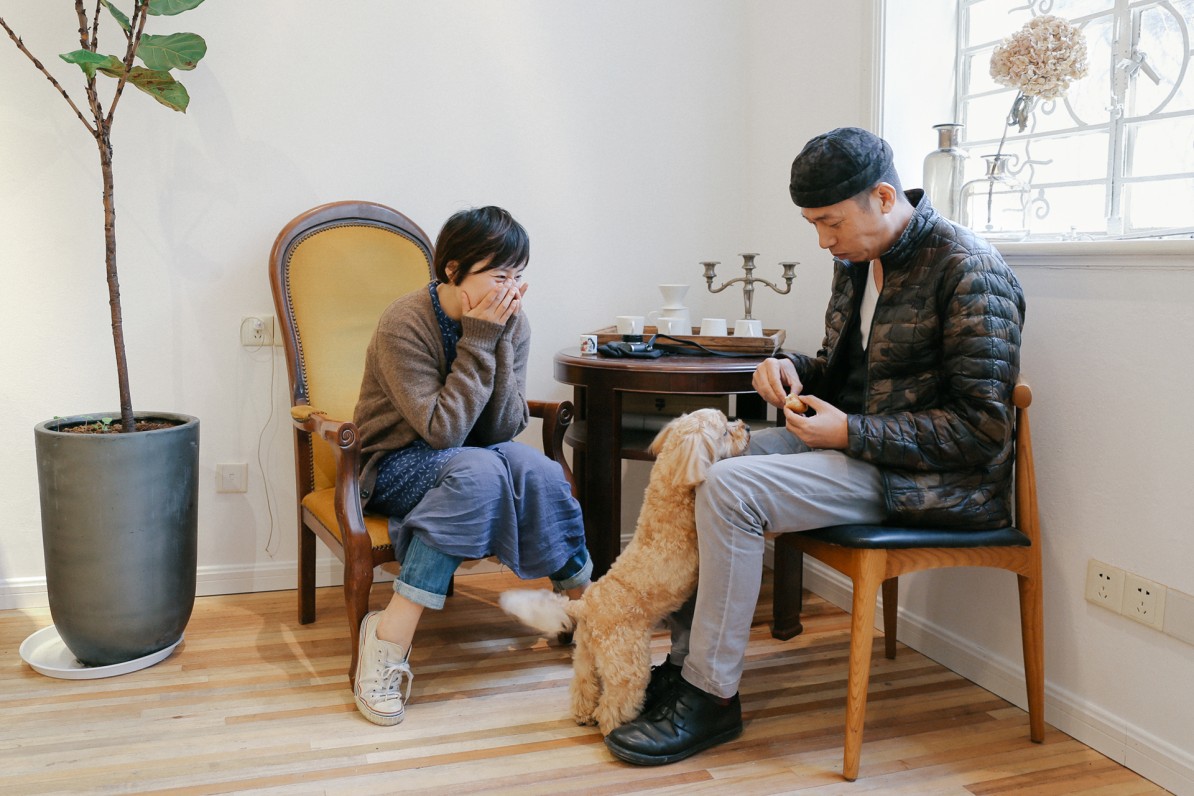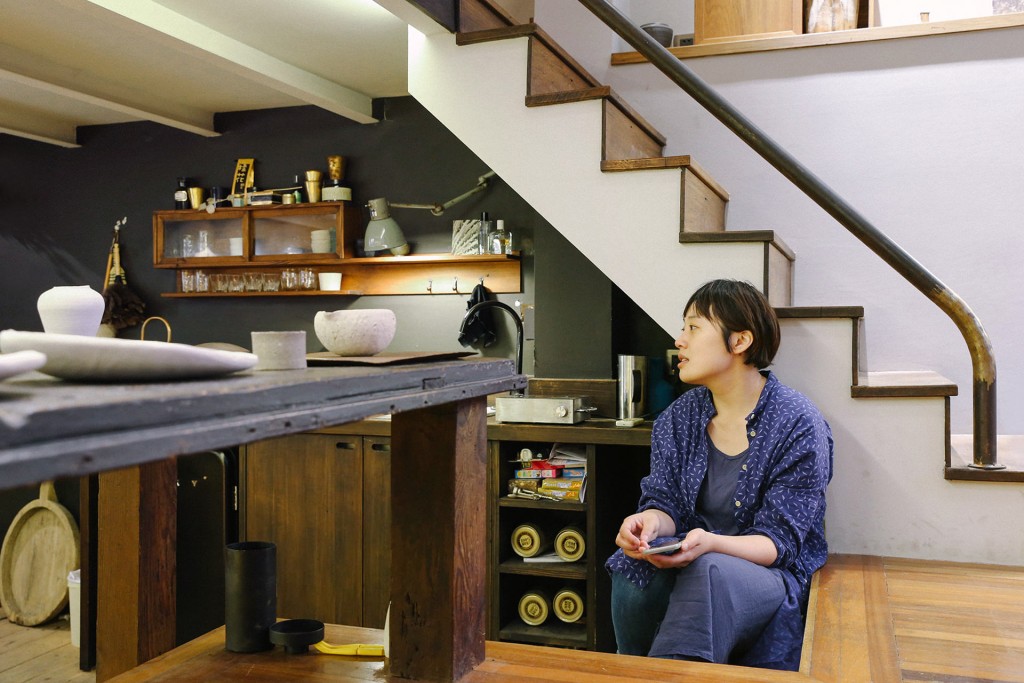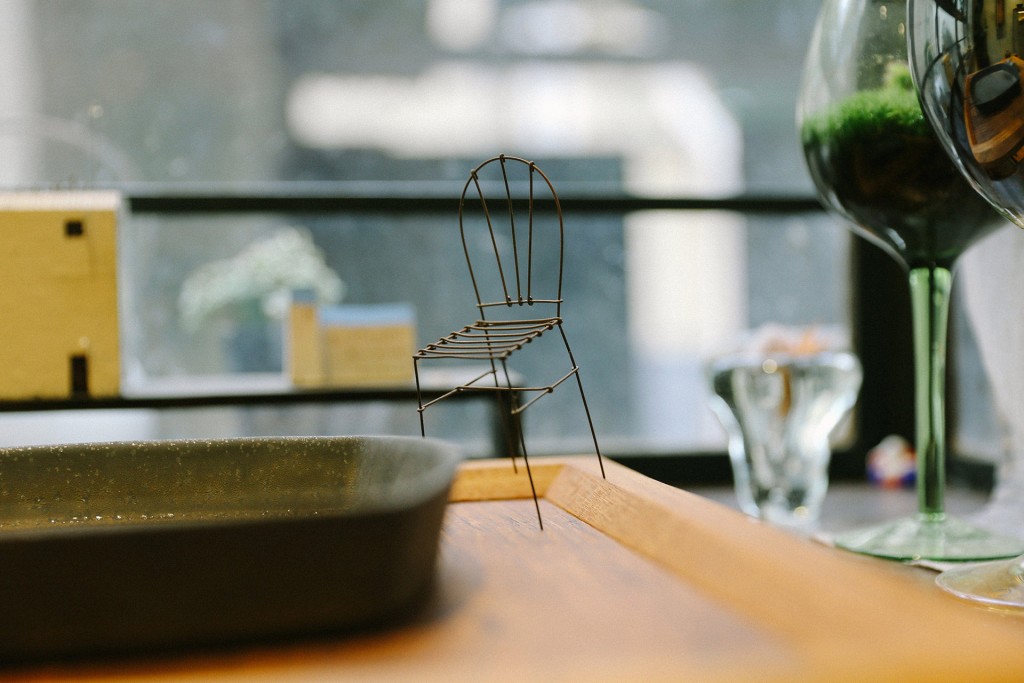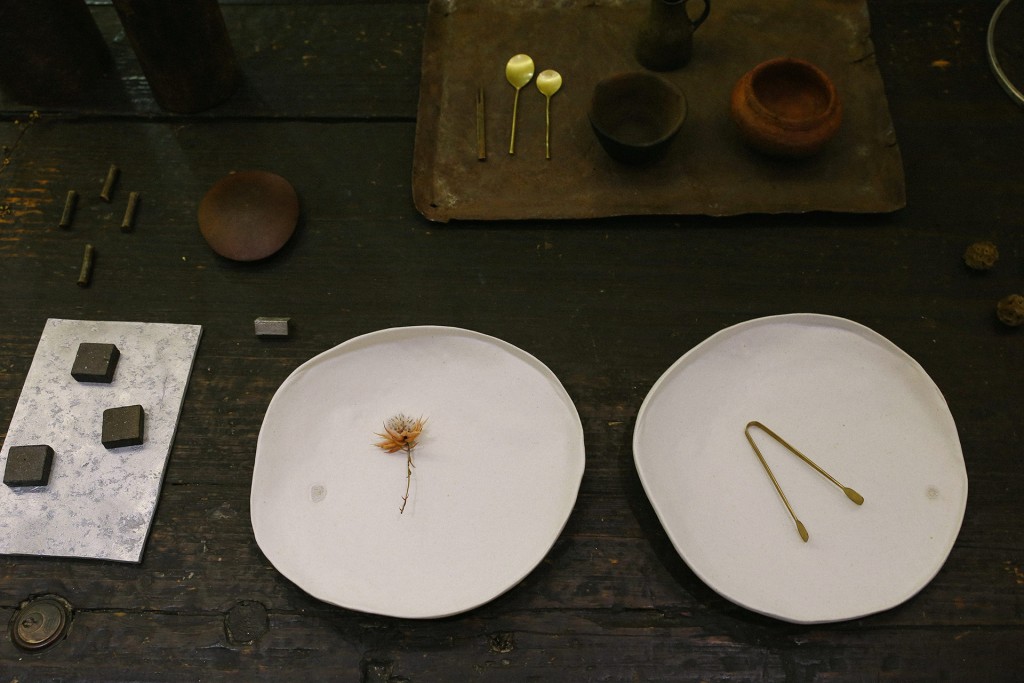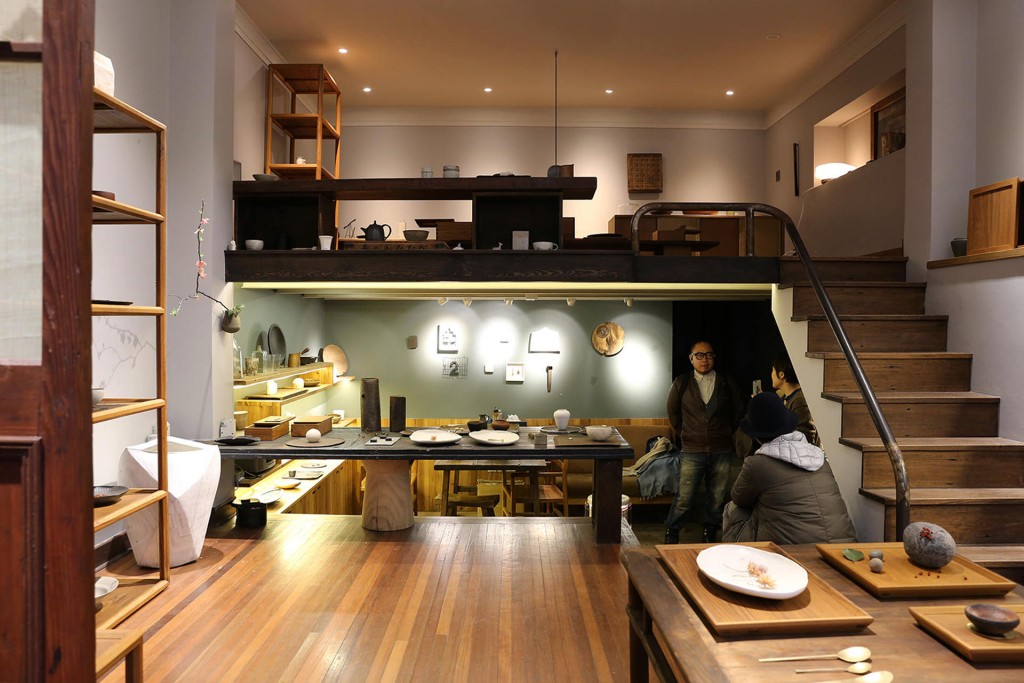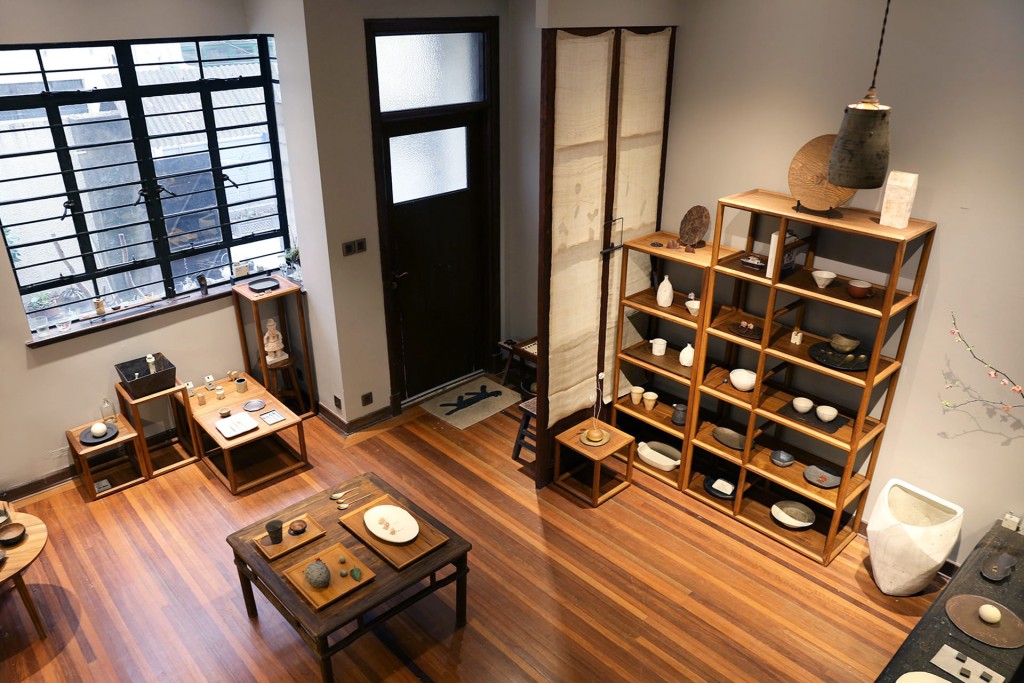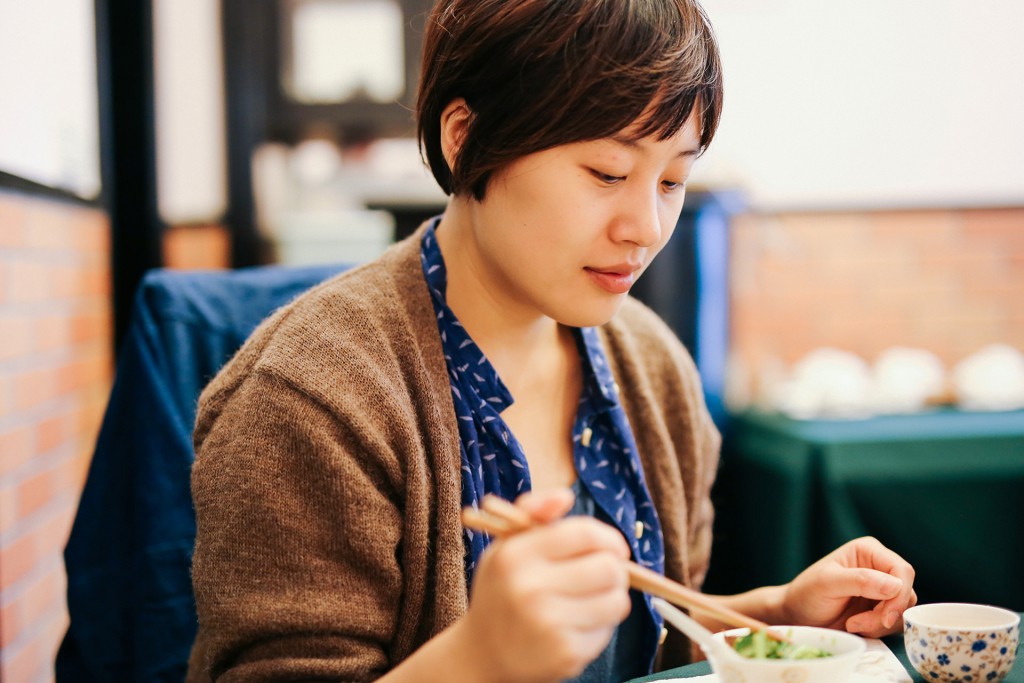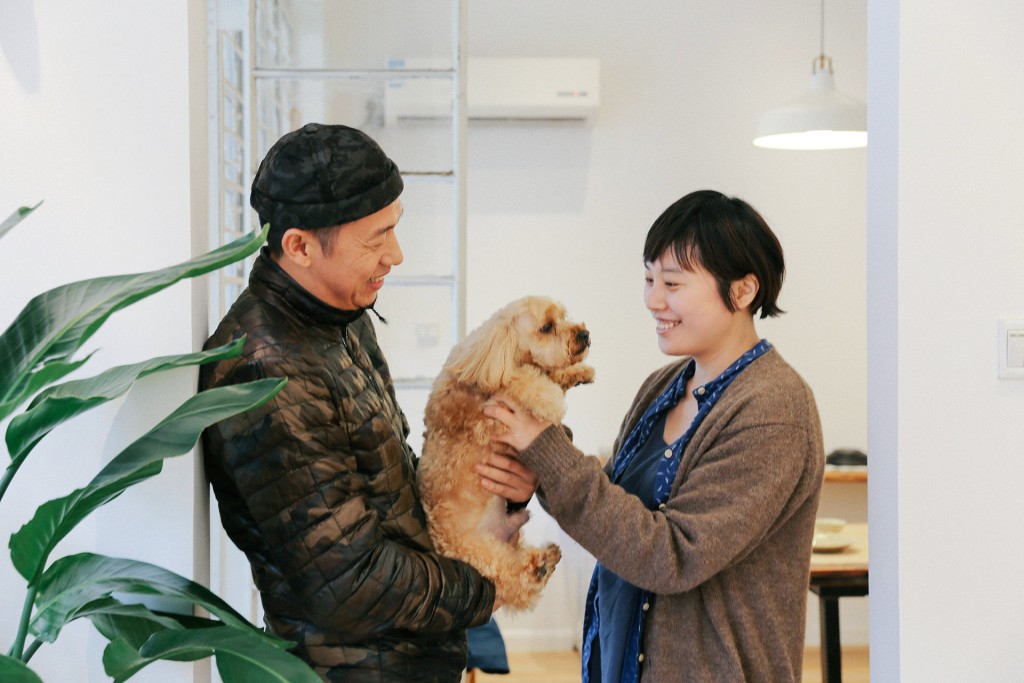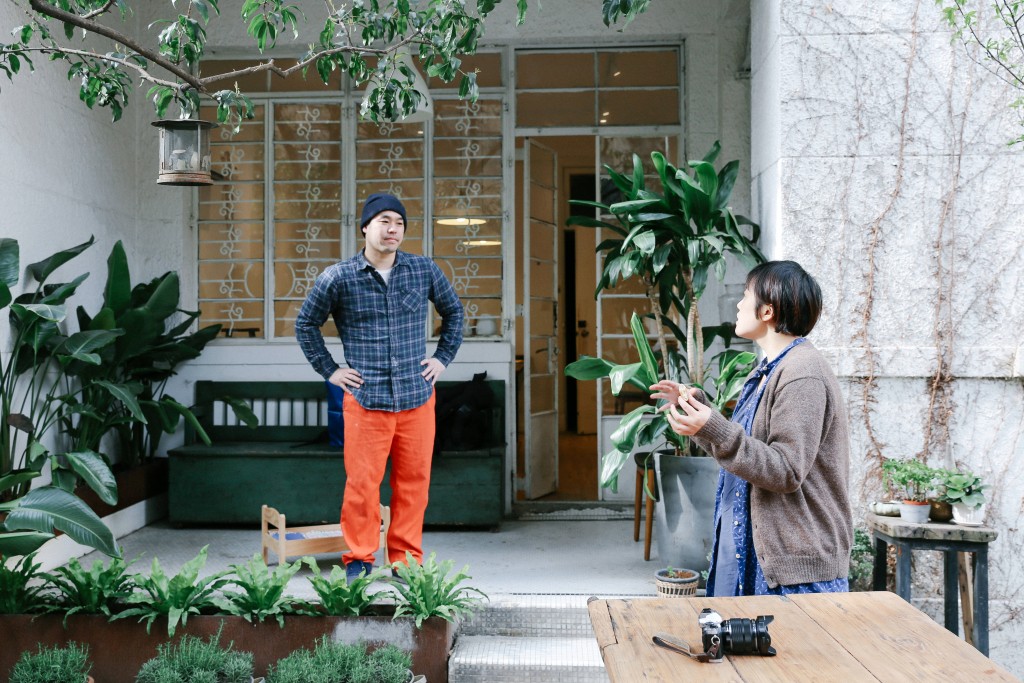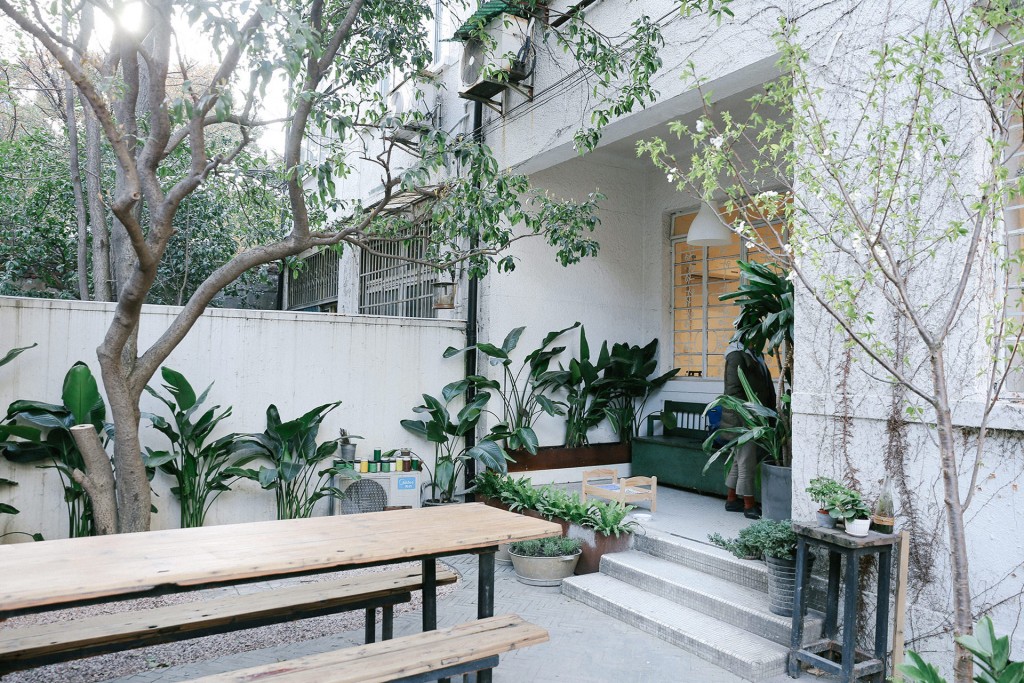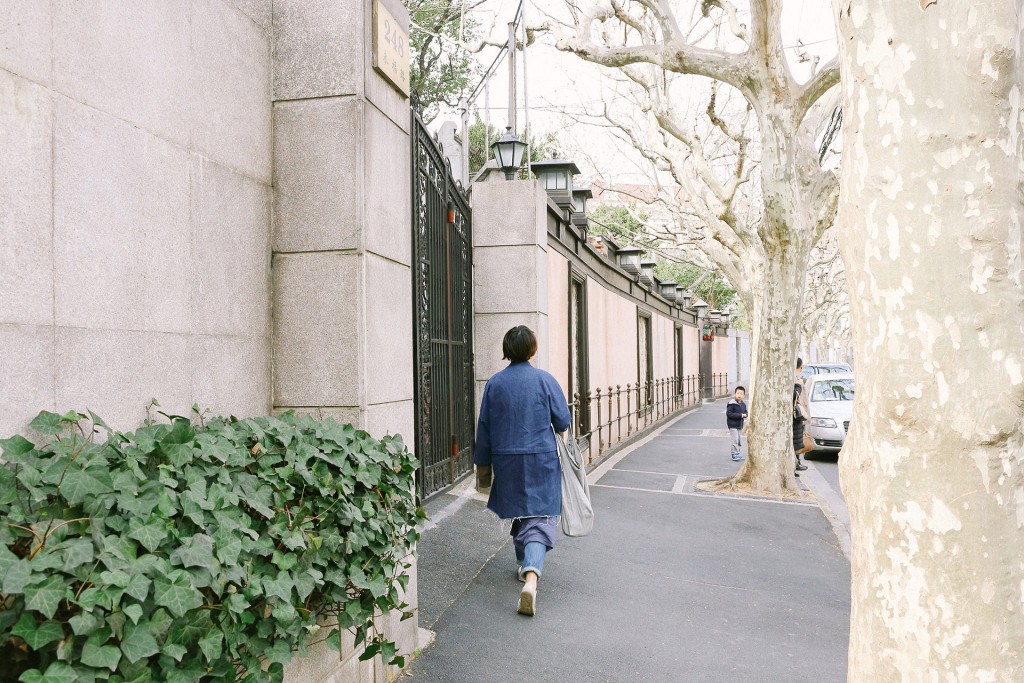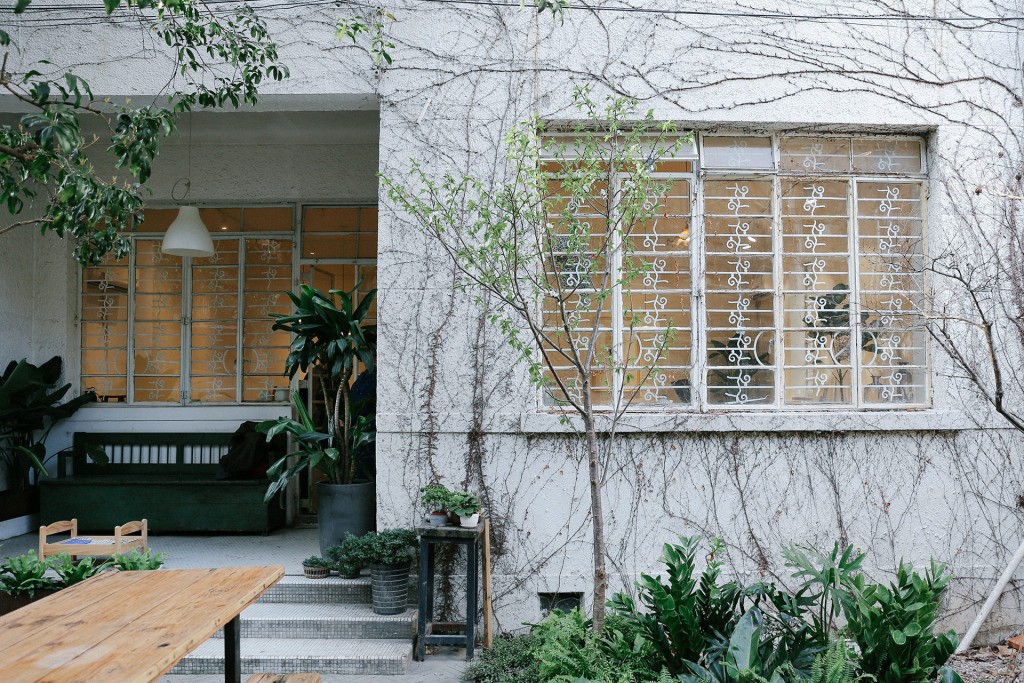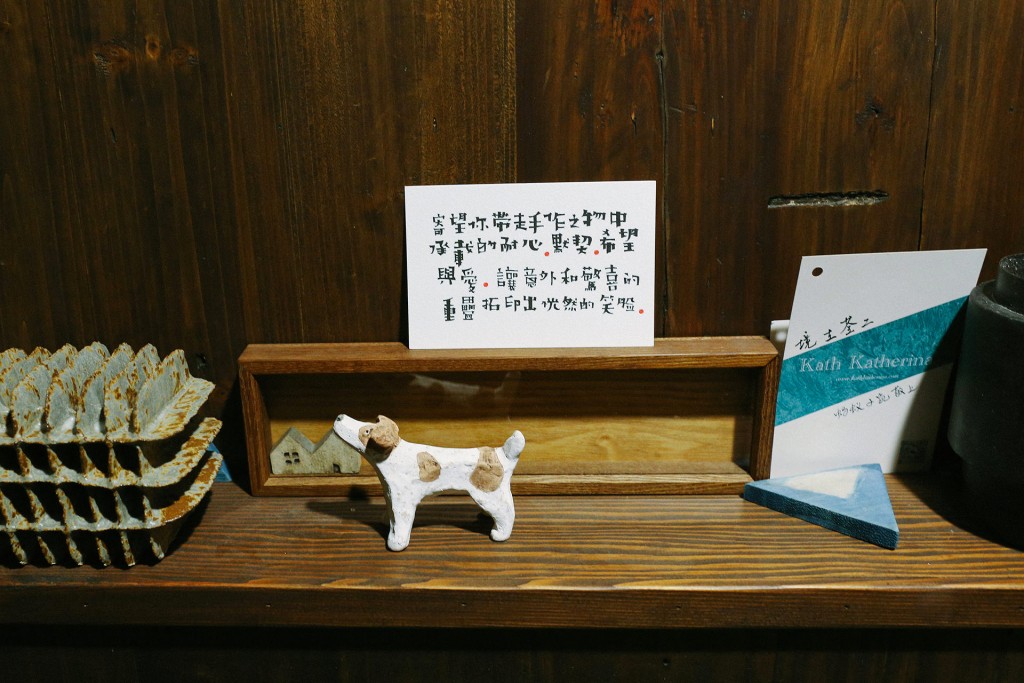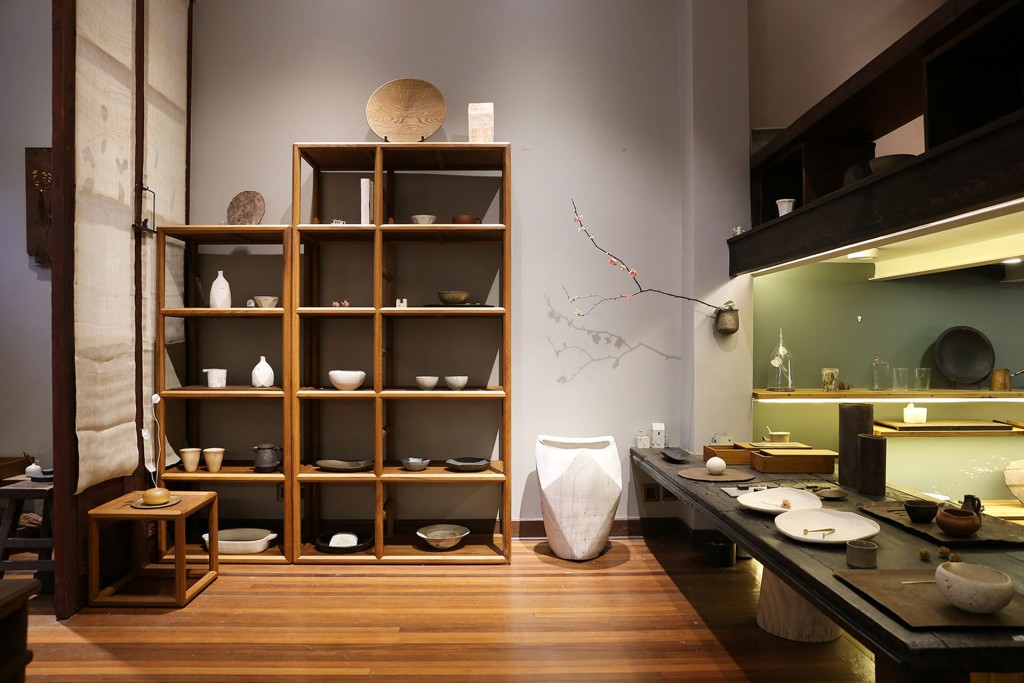We got to know Zulu through a friend in Shanghai. Back then, the only thing we knew about her was that she opened Quan Er, a Japanese homeware store, with her friends in a “longtang” (弄堂community alleyways) in Shanghai. Even before we got to meet each other, she had already sent a long, inviting email to share with us her life and her favorite places in Shanghai. Later, we realized that since its opening in 2013, Quan Er has been a legendary secret store very much talked-about in Shanghai’s art and design circle. In the fast-changing metropolis, the store is quietly reminding people of the beauty of life with its heartwarming homeware.
Written and Photographs by Kat Leung
Zulu graduated from Fudan University with a bachelor’s degree in law. When she was doing internship at a court, she realized that it wasn’t her heart’s calling. Instead, she decided to study in Japan and stayed there for several years—that’s when she fell in love with Japanese culture and beautiful Japanese homewares. After her return to Shanghai in 2011, she started working as lifestyle editor for local magazine “The Bund”—a job she continued until the magazine closed down in the beginning of 2016. In 2013, she opened Quan Er with her friends Wen-lin and A-hua. Both of them were working for the magazine and shared Zulu’s passion for Japanese homeware. The Chinese characters of “Quan Er 荃二” reflect a combination of elements including grass, earth and metal. It’s indicative of the homeware they bring back from Japan—a collection of pottery, ironware, woodware, glassware and vases.
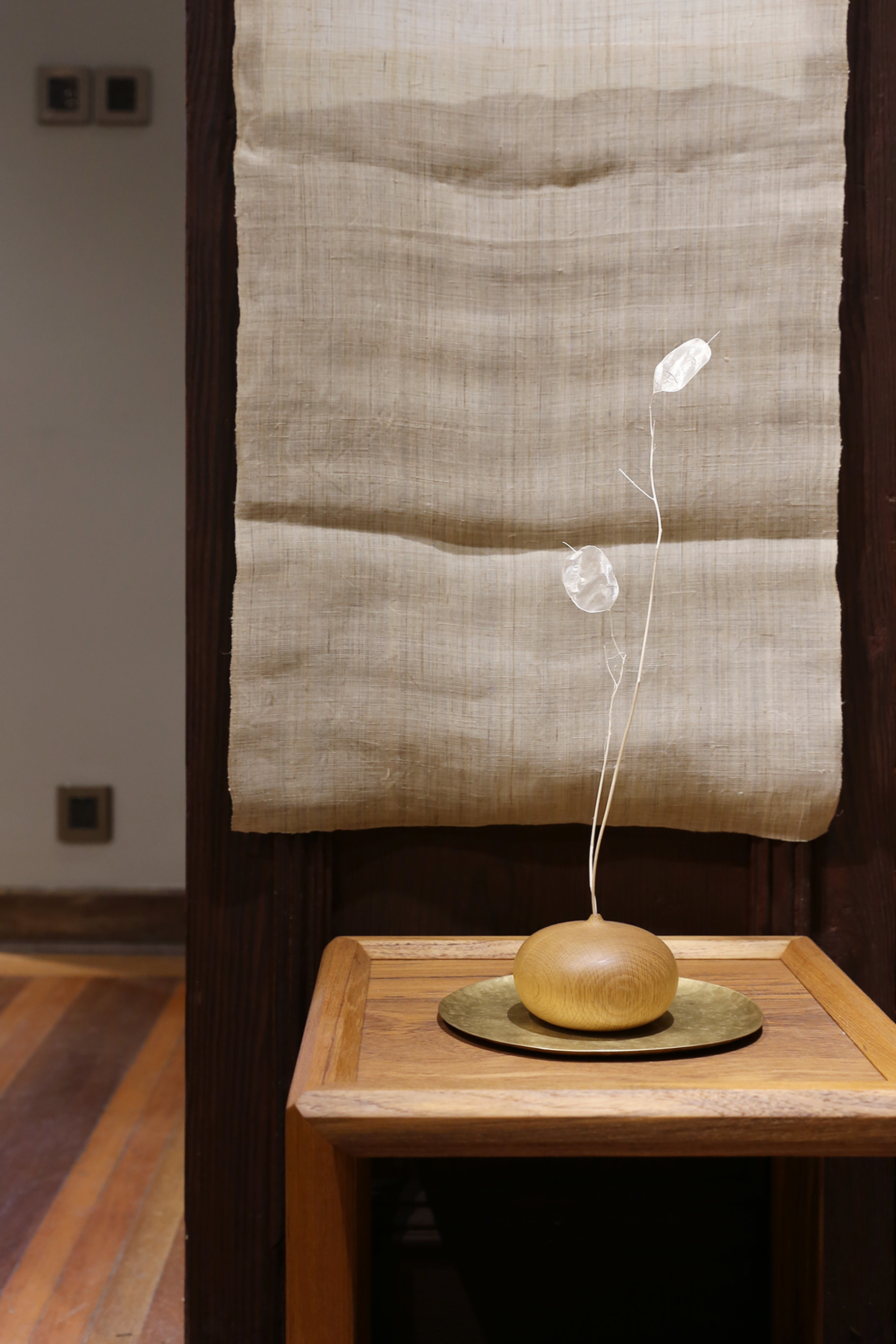
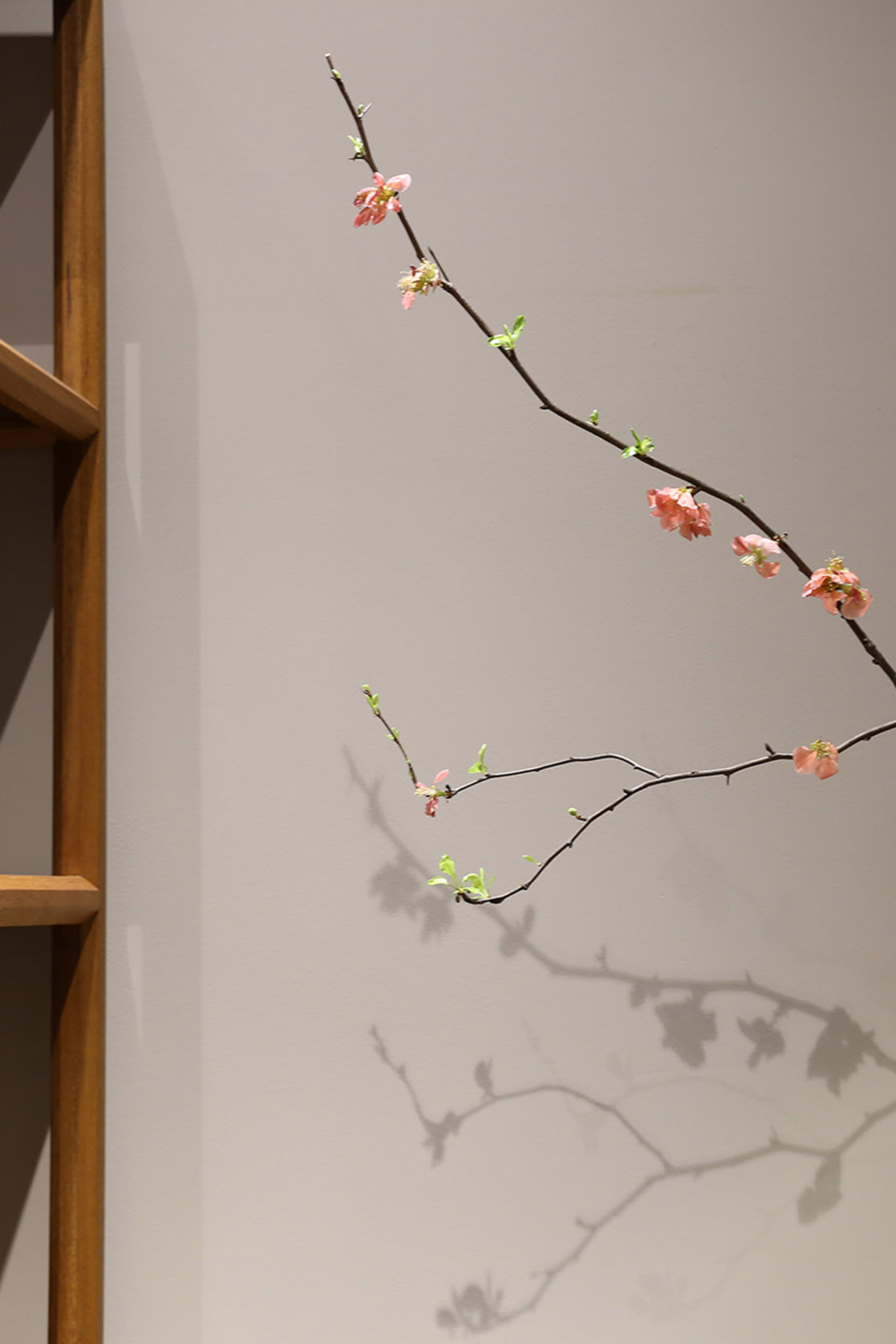
Why did you decide to open Quan Er?
I studied in Japan for 6 years. When I was in Japan, I traveled to many places by car. I realized that the simple, old way of living still exists in many small villages, and that’s how I gradually fell in love with Japanese homeware. After I came back to Shanghai, I started working at “The Bund,” where I met Wen-lin and A-hua. They shared my passion for Japanese culture and the Japanese way of living; they had collected also very useful information about many Japanese artisans. Our dream to open a store to share these beautiful things with others slowly took shape. We didn’t open it to make money; we wanted it to be more like a space for sharing. We introduced the works of Iyama Mikiko, Hanaoka Yutaka, Iwata Tomoko and some other artisans in the store—many of their works are one of a kind pieces—the only ones in the entire world. Usually Japanese people don’t let us sell their work before they get to know us and become friends with us. We have known these artisans for a long time, and we feel trusted that they handed their babies to us.
You are a store owner yourself. In Shanghai, what kind of store would interest you?
I’d say a small store with a fun and unique owner. Of course there are some good things about big chain stores; for example, they’re all the same everywhere, so they can give you a sense of security. But most of the time, small stores can bring you more surprises, and they’re usually closely connected to the owners. From the way the items are selected to the whole environment, the owner’s personality and preferences are always reflected in the details of the store. So if I meet someone interesting, someone who has his own opinions, and he tells me that he owns a store, I would want to check it out—whether it’s a restaurant, a grocery store or even a massage salon. (laugh)
“This is probably the most Shanghainese restaurant there is; they serve traditional Shanghai home cooking, but not those imposing, thick-sauced, fake Shanghai food you find all over the place.”
Zulu is the most typical Shanghainese you can meet. She is easygoing, laid back, but her mannerisms and affinities belie a sort of Japanese flavor. She enjoys good food and good fun, loves cats and pictures a different future for her life in Shanghai. On the day of the interview, she took us to places she frequents, including Ms. Mao’s Hao Sheng Restaurant: a tiny restaurant serving traditional Shanghainese dishes. Zulu’s intriguing introduction already made us drool before we could get a taste of the food. “Ms. Mao’s Hao Sheng Restaurant is probably the most Shanghainese restaurant there is. It’s been open for around two decades and they serve traditional Shanghai home cooking, but not those imposing, thick-sauced, fake Shanghai food you find everywhere. Ms. Mao buys the groceries herself every day. The chef and waitresses have also been with her for over 10 years. They pay great attention to the ingredients and cooking methods; it’s not like they’re cooking for an emperor, it’s more how Shanghai mothers would prepare their own home-cooked meals for their family—filled with love and care. They only take reservations and don’t take more than one group of guests for each table during lunch and dinner services. Their door is usually locked from the inside: they don’t open the door to new, unreserved customers, even if they knock on the door.” Zulu’s favorite dish is their Shanghainese wonton soup, despite that they are nearly all skin with very little filling. The wontons seem almost carelessly made, as though pinched into shape on a whim. The accompanying soup, as well, is light: simply water brought to boil with a touch of salt, delicate slivers of julienned egg, tiny dried shrimp and dried seaweed, finished with a dab of lard and chopped spring onions. The simple soup makes a perfect match with soup dumplings and fried dumplings, but it’s also a perfect dish in its own right. Zulu describes the dish as what old Shanghainese would call “a tactful person”—someone who stays low profile without losing his own unique character.
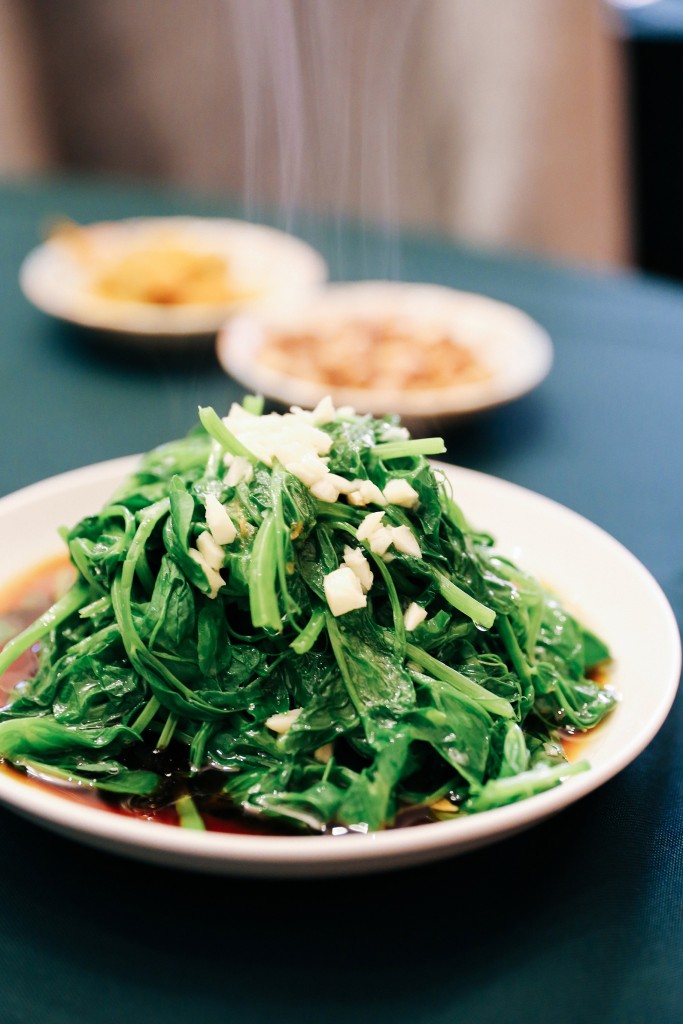
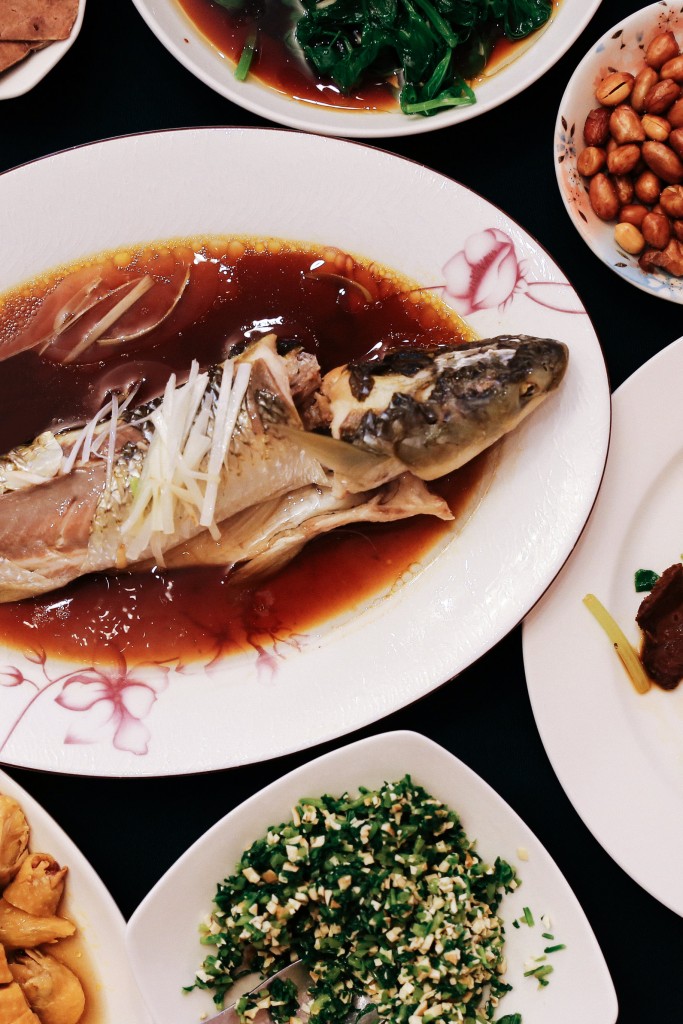
Fashion, trend, high speed, excitement; Shanghai has it all. But Zulu’s Shanghai reveals a different face of the city: it’s down-to-earth with a sense of real life; it’s magical in every season with different kinds of beauty. Zulu’s favorite places are always simple and elegant; another good example is where she took us to after the meal at Hao Sheng: her good friend Guan Jia’s store. Fashion designer Guan Jia is the owner of Shanghai Danran Studio, but he’s more famous for his handmade noodles—originally sold only to friends but quickly gaining a reputation among foodies in Shanghai. Similar to Zulu, Guan Jia lives his life the way he wants: selling homeware he likes in a place with a small garden in a longtang. The beautiful garden is right in front of his kitchen. Under an osmanthus tree, we all sat around the big wooden table in the garden to enjoy the fresh bread made and brought by his Japanese friend Hiro, who used to work in a famous bakery in Shanghai. It was a rare moment of peace and tranquility in Shanghai, which we all appreciated.
“Actually, Shanghai has a strong sense of real life—it brings me peace.”
What are the inspiring places in Shanghai for you? For example, places where you can easily stay for a whole afternoon?
Actually, Shanghai has a strong sense of real life. You can also say that it’s very down-to-earth. Although this sense of real life is less present now comparing to what I could feel when I was a child, you can still easily see what I mean if you visit Shanghai’s historical residential areas.
For example, you can see people making traditional food for Chinese New Year in the longtang around my place. Things like Chinese sausages and dried eels are a bit stinky, but it brings me peace just by looking at them. I guess it’s because no matter how modernized the city is, how many skyscrapers are built, how many Michelin-starred restaurants are opened every day, these things are just what makes the city looks glamorous. But for local commoners, at the end of the day, it’s the everyday trivial things—like what to eat for dinner or which brand of detergent is cheaper—which are closely related to their real lives.
I’m not good at multitasking. Sometimes I am so stressed that I don’t even bother to tidy myself. But if I get to take a walk on the old streets, get myself an egg pancake from a street vendor who’s been around for more than a decade, I can always pull myself together again. We all have to make sure we live a comfortable and happy life, so that people around us won’t have to take in the negative energy from us. This way, it’s easier for us to continue our work and other things in life.
I can spend a whole afternoon in many places in Shanghai: my friend Xiao A’s cafe, Xiao Ying’s teashop in Tianshan Tea City, A Yu’s hat studio Kruezzz, and of course, Quan Er when it’s not open to customers. The store is closed on weekdays in the afternoon, so sometimes I am there to write things or just to space out, I really like it.
What’s your favorite district in Shanghai?
The Old French Concession in Xuhui District. Most of the streets here are kept the way they used to be, meaning they are not widened. You can easily say hi to your friend on the other side of the street. In summer, the London Planetrees on both sides of the streets are transformed into a green tunnel. In autumn, especially after the autumn showers, a carpet of yellow foliage in different shades makes the season extra noticeable. It’s probably the best place to take a stroll in Shanghai.
“In summer, the London Planetrees on both sides of the streets are transformed into a green tunnel.
In autumn, especially after the autumn showers, a carpet of
yellow foliage in different shades makes the
season extra noticeable.”
After we left Guan Jia’s store, we finally came to Zulu’s store Quan Er. When I say Quan Er is a secretive hidden store, I am not exaggerating. The store has been located in a hidden yard of an old house on Wuyuan Road since its relocation in 2015. There is no sign or eye-catching door—the owners don’t aim to stick out, they just want to go with the flow. The store is only open at certain times of a week. Reservations for visiting are usually needed; sometimes they also hold exhibitions here. The interior of the old house is rather simple and restrained: black and white while dark pottery and ironware are displayed in a tiny space surrounded by grey walls. Coming to this tranquil place feels like visiting the home where a friend actually lives her life: Zulu made us tea, sat on the stairs and started to introduce us the handmade homeware in her store. Some small pottery animals are placed randomly in the store, making the space cozy and cute. Every item is different, but they all have one thing in common: they’re small and simple, and the warmth of a handmade item makes you want to touch them and feel them. Just like Zulu’s favorite dish— Shanghai-style wonton soup—they are low profile, perfect in every way and unique in their own ways—they are just waiting for their future owners to show up, take them home, and cherish them forever.
Writer’s note:
Zulu likes Japan, but she also likes Taiwan. When she visited Taipei with her boyfriend for the first time, a black dog followed them from Yanming Mountain to their hotel. They didn’t know what to do, so they took it to the vet for a medical checkup. They even found somebody to keep the dog before they could find someone to adopt it. Several months later, the black dog ended up in their home in Shanghai, becoming an inseparable bond between Zulu and Taiwan.
